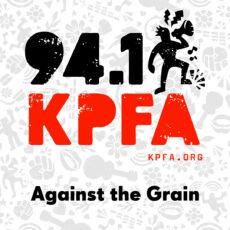Against the Grain with Sasha Lilley – June 6, 2012
Baker and radical scholar Aaron Bobrow-Strain traces the history of white bread — symbol of science, progress, empire, and now bad taste — along with the alternative food backlash that it provoked. While food activists today may believe they’re transforming the world through wholesome food and toothsome bread, he suggests that such politics often reinforce … Continued


